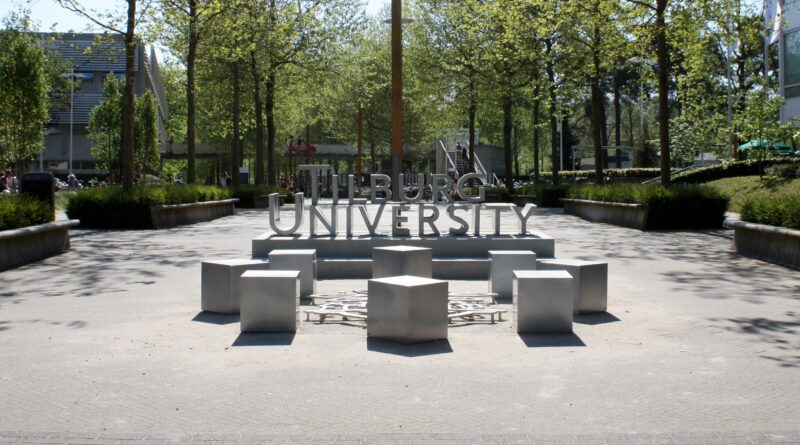Changes Within the EOR Program
We have come a long way since the EOR program was set up. Back then, you had to make phone calls or even go outside to talk to people, there were no Snapchat filters available to make you look pretty in pictures and #tbt was only a random arrangement of symbols and letters. Especially due to the evolution of the internet in the recent past, those days are gone and have become merely a depressing #tbt. If we want, we can now spend our time inside our homes behind a screen, tagging our moms in pictures of dogs on Facebook all day. Most students obviously have no issues with adapting their lifestyle in this way, but how does the EOR program keep up with technological developments? Charlotte and I talked to Ruud Hendrickx and Anja De Waegenaere about what they are doing to keep the program up-to-date.
Text by: Julia de Kogel
Data Science in master’s programs
Most of the changes that are currently being made are changes to the master programs. The master programs that EOR offers are BAOR, EME and QFAS. BAOR is a new specialization of the master ORMS. BAOR is an abbreviation of Business Analytics and Operations Research and it deals with methods and models for decision making and data analysis. The EME (Econometrics and Mathematical Economics) master focuses on economic theory (game theory) and econometrics, and QFAS (Quantitative Finance and Actuarial Science) focuses on measuring and managing risks, for example at banks, insurance companies or pension funds.
Over the recent past, each of the three master programs has gradually been revised so as to offer a balanced mix between theory and modern applications. The programs are designed such that students acquire advanced knowledge combined with strong practical skills. Another important development within these programs is that all of them include data science methods now. Due to technological developments over the past years, there are now huge amounts of data available to us. Each of the three EOR master programs teaches data science methods that help us to deal with and make optimal use of this data. Big data is used in some way or another by many companies nowadays, and as more methods become available to deal with it, this use is only increasing. Therefore, knowing how to handle big data gives you a huge advantage on the job market.
Although the results have yet to prove the success of the renewed programs, the reactions have been positive so far. This is no big surprise, considering that the field of data science has gained so much popularity lately and data scientist is predicted to become one of the most influential jobs in the near future.
Why EOR?
So why should you study econometrics instead of data science? Ruud Hendrickx explained that the two are not entirely compatible. First of all, if you have passed the EOR bachelor, you can enroll in a Data Science master’s program, but if you want to do this the other way around, you first need to pass several extra courses to gain additional mathematical skills. The biggest difference between the two bachelor programs is that the EOR program includes many more technical mathematical courses to allow for specialized, more advanced approaches to data science as well as to a broad range of other quantitative fields. The Data Science bachelor program, on the other hand, teaches (as the name suggests) only data science, albeit from more angles, such as legal and social issues, than the EOR program. Hendrickx concluded this explanation by saying that the EOR bachelor provides you with a more diverse background and thus a larger pool of master’s programs to choose from. These include, but are not limited to, several Data Science master’s programs.
One of the foremost changes in the EOR bachelor’s program is a pilot, which will start in the spring of 2017 for the first-year students. If it is a success, the pilot will be extended and become available for students in higher years as well. The pilot consists of a mentorship arrangement that aims to make it easier for students to talk to someone from the EOR department about their struggles with the program. Besides this, in a mentor system, students can get better guidance in for example the selection of electives and the choice of a thesis subject. Setting up a new mentorship system was commissioned by the university and has to be done by all programs the university offers, although they do get to work it out in different ways. In short, the mentorship arrangements are being put in place to help students with whatever study-related questions are on their mind
The EOR department has therefore chosen to draw up a system in which bachelor students get the opportunity to talk about their struggles with a teacher, in addition to the already available mentorship systems that MAK and the program coordinator offer. In the spring, first-year students will receive an invitation to talk about their experiences with the program so far. The MAK mentor groups formed in the TOP week do not always stay close, and responding to an invitation is a smaller step than making an appointment with the program coordinator. Therefore, the members of the department hope that sending out invitations and giving students the opportunity to talk to one of their teachers will make mentorship more approachable for students. In the upcoming years, the mentorship system should evolve to fit the needs of students best.
Job market preparation
The last changes that we will discuss are changes to the curriculum. Although it is not difficult for econometricians to find a job, one should always strive for excellence. That is why the BSc EOR program is offering new courses to better prepare their students for the future. First of all, last year, the two-year course Improving Society Lab was introduced. Students need to take this course in their first and second year and the classes are sessions in which they need to apply their mathematical knowledge to practical cases, often presented by a company. This gives students a clearer image of what they can do after their studies and is supposed to keep them motivated. Since the course only started last year, there are no numbers available yet to show whether the program achieved this goal, but feedback on the course has been mostly enthusiastic.
One should always strive for excellence
Another extremely important skill to have in one’s toolbox is the ability to present. Most EOR courses are very theoretical and substantive, but gaining the ability to get ones knowledge across to others is at least as important when working at a company. This also holds true for presenting in writing. Academic writing is not yet taught to econometricians, but it would make ones writings look more professional and therefore more convincing as well. Most programs of Tilburg University already offer courses that teach communication and writing skills, and the EOR bachelor’s program will offer one such course as well, starting next year. This course will teach students to present well, write academically and to find accurate information in academic databases. The course will start in the second year, meaning that one of the second year courses will be moved to the third year and one of the optional courses will be removed from the bachelor program.
Lastly, sessions are offered to all master students and third-year bachelor students to give them an impression of their possibilities once they have finished their masters. When they have finished their studies, many econometricians start to work at the company at which they did an internship, but they may have several other options. In these sessions, the students are introduced to different companies as well, so they can have a broad view on the available career possibilities. For each master, so BAOR, EME and QFAS, four to six sessions are held each year. During these non-mandatory sessions, a representative of a company will present their company and discuss their projects, activities and innovations so that students get a sense of whether they would fit in with that company’s work attitude.
In sum: these sessions may help master’s students determine what kind of company may suit their interests and personality best and they are also quite helpful for third-year students, as they may help students to decide which are to specialize in, and, hence, which master program to choose.
The ability to get ones knowledge across to others is at least as important
While on the topic of choosing a master’s program, an interesting prospect was mentioned. For those that want to diversify their skillset or for those that are looking to find employment in an interdisciplinary line of work, there is always the option of combining two master’s programs. Popular combinations are EME with QFAS or BAOR, and EME with Marketing Analytics. Should one choose to do this, one will effectively be obtaining two master’s certificates, without having to take the full course load that would normally come with a double master’s. One would still have to write two theses, but instead of 14 mandatory courses for two single-year master’s programs, one would only have to take 10 courses, making it a rather attractive option for those looking to go above and beyond.
The changes to the EOR bachelor and master programs sound promising so far, so we are eager to see the results of the department’s efforts in following couple of years!





